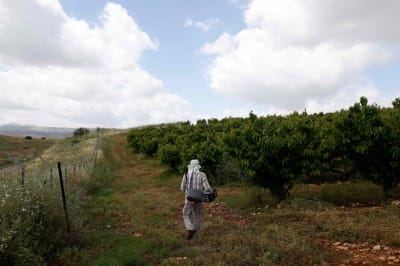Israel deports a dozen Malawians sent to work on farms

Source: Malay Mail
LILONGWE (Malawi), May 8 -- Malawi yesterday said Israel had deported 12 workers who had walked off farms and orchards, left deserted by the Gaza conflict, that they had been sent to work on.
The workers "in breach of their contracts... abandoned their lawful employment at the farms to start working at the bakery", Malawi's government spokesman Moses Kunkuyu said in a statement.
Since November, hundreds of Malawians have flown to Israel as part of a government labour export programme aimed at finding jobs for young people and generating desperately needed foreign exchange.
Many Malawians remain without work as the country has been gripped by an economic crisis that has seen massive government spending cuts.
Israeli farms, a valuable part of the economy, have lost thousands of labourers since the October 7 Hamas attacks triggered the Gaza war.
Dozens of foreign workers were among about 240 people that Israel says were kidnapped in the attacks.
Lilongwe cautioned the remaining workers, many of them young men and women, that a breach of contract would "not be tolerated".
Kunkuyu urged workers to "desist from such behaviour as it puts this country into disrepute".
After being processed, four of the 12 workers arrived back in the southern African country on Tuesday while the other eight would arrive on Wednesday, the state said.
The labour deal has been criticised by rights group and Malawi's opposition.
In November, the country's opposition leader Kondwani Nankhumwa as "an evil transaction" because of the threat from the war that has left tens of thousands dead.
"The two governments will ensure the labour export to Israel operates within the prevailing regulatory frameworks," the Malawian government said.
Two weeks ago, Malawi opened an embassy in Tel Aviv, which its foreign minister Nancy Tembo said reaffirmed the government's commitment to "long-standing" bilateral relations between the two nations.
She said the labour deal would provide 3,000 workers initially. -- AFP



